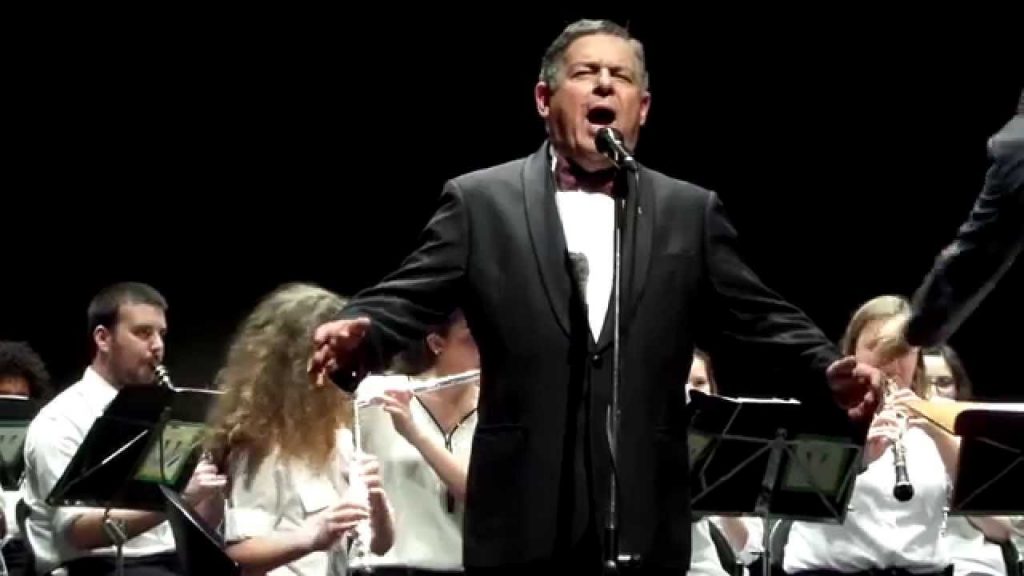Carlos Guilherme Rebelo Nunes (Lourenço Marques, 1945) is a Portuguese opera singer.
He spent his childhood and youth in Mozambique, where he attended Liceu Pêro de Anaia, in Beira, and did his military service. He released a single on the Alfabeta label and was crowned “King of Radio” of Mozambique in 1970.
He received singing lessons from Greta Muir in Rhodesia, making his debut at the Salisbury Opera Company with Riccardo in Verdi’s Un Ballo in Maschera. In 1975 he won the International Eisteddfod Competition, coming to Portugal in 1976, becoming a collaborator of John Labarge, at the Algarve Regional Conservatory.
In 1980 he became resident artist at the Teatro Nacional de São Carlos, making his debut in the opera Macbeth. Following this show, he played several main roles, in A Flauta Mágica, D. João, O Rapto do Serralho, among others.
He was part of the Duo Romeu e Julieta, achieving great success with the song Quando o Coração Chora de Amor, with lyrics by Luís Arriaga. He received the Tomas Alcaide Prize in 1984.
In 1987, with the Florence Chamber Opera Company, he sang the role of Almaviva, in The Barber of Seville, in France, then traveling to Israel where, at the invitation of the New Tel Aviv Opera, he was Truffaldino in Love of the three oranges.
His first album, “Canções de Amor”, was released in 1990. The album evoked famous compositions from the 40s and 50s. One of the themes was “Guitarra Toca Baixinho”, the Italian theme popularized among us by Francisco José. The album “Histórias de amor”, produced by Jorge Quintela, was published by Edisom in 1991. He records a new version of “When the heart cries”, now with Dulce Pontes. In 1993 he released the album “Canções em Português” on Edisom.
In 1993 he opened the Commemorative Season of the 200th anniversary of São Carlos, singing Eugène Onegin, by Tchaikovsky. He premiered Alexandre Delgado’s opera, O Doido ea Morte in 1994, the year in which Lisbon was European Capital of Culture. In September 1997 he made his debut in the role of Rodolfo in La Bohème, ending his collaboration with the Opera de Câmara do Real Teatro de Queluz.
He then went to Macau where he sang the tenor part in Haydn’s Santa Cecilia Mass. In 1999, returning to São Carlos, he debuted in the lead role in the opera La Borghesina, by Augusto Machado, and was Mercury in Offenbach’s operetta, Orphée aux enfers.
With pianist João Balula Cid he recorded the album “É Natal” in 2000. In 2000, in addition to Stabat Mater, by Rossini, in Ponta Delgada, he performed four roles in other operas, notably his performance in The English Cat by Hans Werner Henze. In April 2001 he starred, at the Teatro Rossini, in Italy, in Il Trionfo di Clelia, by Gluck.
He collaborates with the Banda da Força Aérea, including a duet with Mariza in a version of “Tudo Isto É Fado” (2002). The album “Sou Benfica – As Canções da Águia” from 2003 includes the collaboration of Carlos Guilherme, with UHF, on the song “Ser Benfiquista”.
In 2003 he performed in Coimbra in a José Carreras concert. In 2005, again in Italy, he participated in Ariadne auf Naxos.
In 2006, the Ovação label released the album “Cantar Portugal” and another together with Contratempo, a duo formed by Andrej Michalczyk’s cello and José Beato’s classical guitar, in which they combine classical music and popular music in twelve original songs and one arrangement of a traditional song. Also in 2006, the album “Encontro” was released together with the singer Anabela.
Furthermore, his collaboration with the San Francisco Symphony Emeritus, the Padua Chamber Orchestra, the Budapest, Israel and Shanghai Symphony Orchestras, the Moscow Philharmonic Society and the Teatro Comunale Orchestra of Bologna should be noted.
To celebrate 30 years of his career he prepared a special concert, that toke place at the Centro Cultural de Belém (Lisbon), on September 2, 2011.






“Your vocals are absolutely stunning! The passion and soul in your singing make every performance unforgettable.”
He is an amazing opera singer!!
I love Carlos Guilherme
On a scale from 1 to 10, you’re an 11.
great opera singer